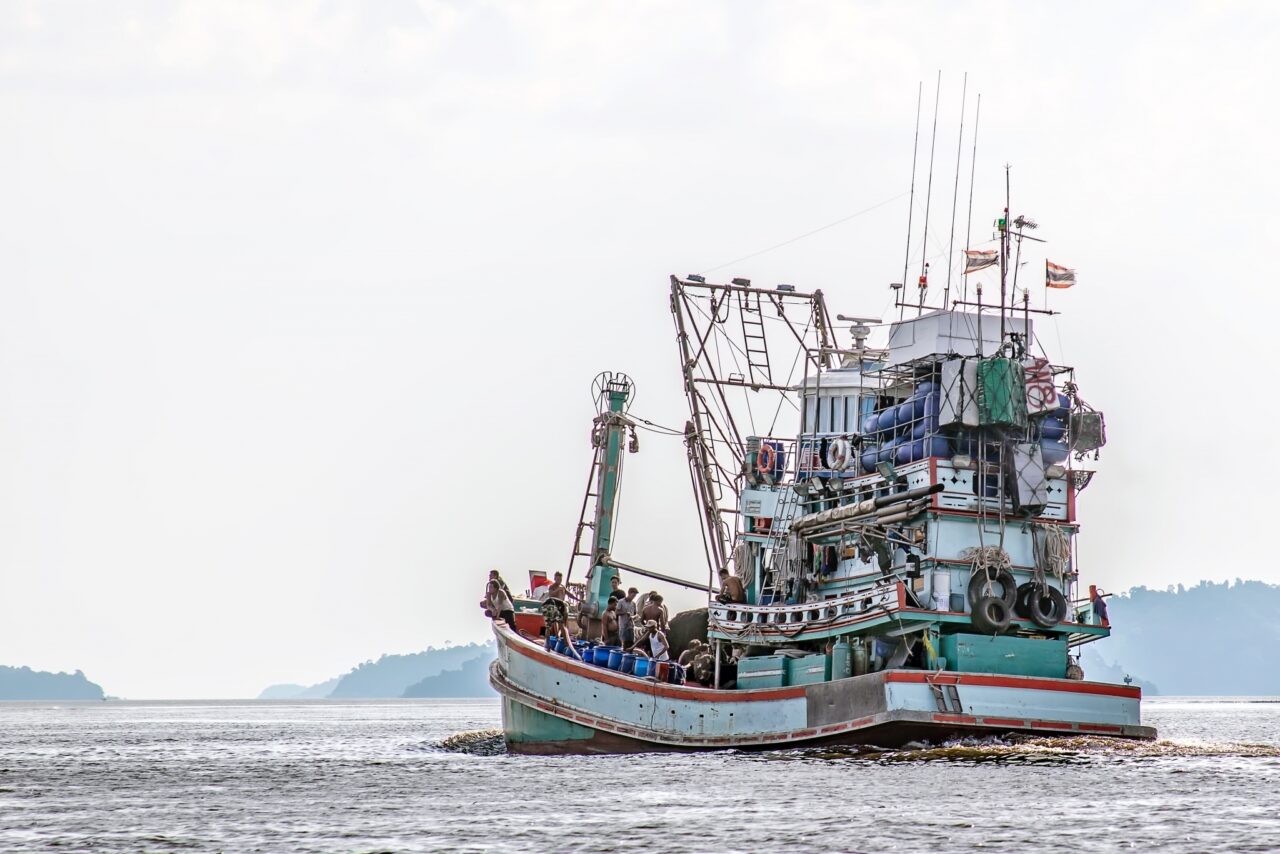
Thailand
In the waters of Thailand, thousands of men are currently employed in the fishing industry — many of them against their will. Promised a way out of their poverty, they are lured into work on fishing boats only to find that they are trapped at sea, separated from their families and forced to work in grueling conditions.
This 7-billion-dollar industry employs tens of thousands whose lives can be incredibly dangerous. Vulnerable migrant workers, primarily from Myanmar and Cambodia, are trafficked into the Thai fishing and seafood industries through deception, threats and violence. In our study of Thailand’s labor trafficking released in 2017, only 13% of workers surveyed reported fair labor conditions at sea. They were overworked and underpaid. 74.2% of people surveyed reported working at least 16 hours a day. 89% of them received less than minimum wage.
Their average monthly pay was equivalent to $166.80 per month. The majority were in debt bondage. 76% were restricted from leaving work until they paid off their debts. Human trafficking is a lucrative business — profits top $150 billion a year globally according to the International Labour Organization. Like other forms of slavery, labor trafficking thrives when criminals are free to prey on victims without fearing the law.
A sustainable anti-trafficking solution must involve criminal prosecution. International Justice Mission Thailand is partnering with the Royal Thai Government, the Department of Special Investigation and local law enforcement to combat labor trafficking in the fishing and seafood industries in Thailand to end the impunity within which traffickers operate, resulting in a significant reduction of trafficking cases.
While the Bangkok field office was founded in 2017 to focus on helping the Thai government combat slavery at sea, IJM has long been established in this epicenter of Southeast Asia since 2000. In the North of Thailand, approximately 400,000 ethnic minority members were denied access to their basic rights, making them vulnerable to exploitation and abuse. After 20 years of persistence working closely beside government officials and forming community networks, IJM Chiang Mai has transformed how the justice system approaches the issue of statelessness, creating an unstoppable pathway to legal status for current and future generations.
Rescue Victims
We rescue victims who have been trafficked and are being exploited on fishing vessels and within the seafood industry. IJM collaborates with Thai law enforcement and other governments in the region to investigate labor trafficking crimes and assist with operations to set these men free.
Bring Criminals to Justice
We bring criminals to justice by assisting police as they gather evidence and by supporting prosecutors as they bring charges and build cases against traffickers, recruiters and boat crews or owners involved in the exploitation.
Restore Survivors
We restore survivors to a place of physical and emotional safety. IJM social workers provide support during the rescue operation and create individualized care plans for each survivor so they receive medical attention, psychological counseling and long-term support in their home community—often in a neighboring country like Cambodia or Myanmar.
Strengthen Justice Systems
We strengthen justice systems by advocating for systemic changes that will end the impunity traffickers currently enjoy in Thailand and neighboring countries. IJM also partners with global seafood retailers to use data in assisting the government with their efforts to end slavery in the seafood industry.
Advocate for Citizenship
We travel throughout Thailand's remote northern hill tribe region to help stateless hill tribe people apply for the citizenship to which they are legally entitled. We relentlessly advocate on their behalf to move their cases through overburdened government offices that oversee the citizenship application process.
Strengthen Justice Systems
We strengthen justice systems by facilitating, trainings and collaborating with government agencies, NGOs and civil society to make a more effective, reliable and efficient process for approving citizenship applications. We also work with local communities to train and support volunteers with a passion to advocate for the citizenship rights of ethnic minorities in their communities.